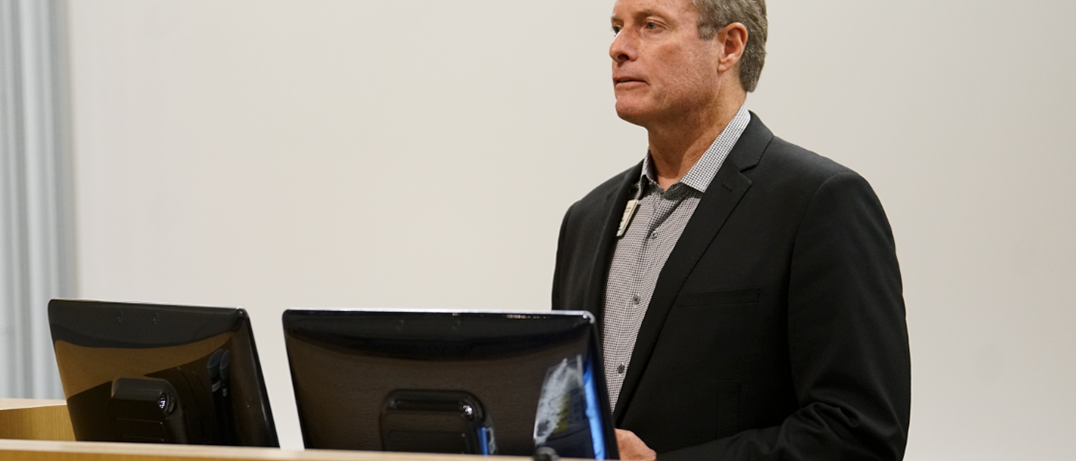Novel Anti-Infectives
Can We Optimize Immune Health To Save And Improve Lives?

Michael R. Yeaman, PhD
Professor of Medicine, David Geffen School of Medicine at UCLA
Chief, Division of Molecular Medicine, Harbor-UCLA Medical Center
Vice Chair, Department of Medicine, Harbor-UCLA Medical Center
Medical Science Investigator, Harbor-UCLA Medical Center / LABioMed
Groundbreaking Anti-Infectives
Dr. Michael Yeaman studies patterns in infection and immunity to develop new ways to prevent and treat infections, particularly those caused by pathogens that resist conventional antibiotics. Through these efforts, he has made groundbreaking discoveries that open new doors to immune health that can prevent and treat infections—and save and improve lives.
A New Generation of Vaccines
In 2002, Dr. Yeaman made a discovery that changed the field of vaccines. The immune system detects dangerous microbes by inspecting their linear sequence patterns and 3-dimensional shapes. In studying how the human immune system defends against the bacterium Staphylococcus aureus (e.g. MRSA) and the fungus Candida albicans, he found that these vastly different pathogens had both evolved almost identical patterns in molecules that allow them to invade tissue. By targeting the common denominator patterns, Dr. Yeaman discovered a vaccine strategy that protects against both organisms.
"We found that MRSA and Candida have evolved like means to exploit a human body, and so we vaccinated against the common denominator, and it protected against both these organisms," says Dr. Yeaman.
This vaccine, called NDV-3, has successfully completed three clinical trials and is now being tested in collaboration with the Department of Defense. This vaccine is the first example of what has been called the 3rd Generation of Vaccines. Since his original discovery, Dr. Yeaman has gone on to find many other vaccine candidates that afford protection against diverse organisms that are among the greatest threats to personal and public health.
Peptide Antibiotics to the Rescue
In recent years, the National Institutes of Health (NIH), Centers for Disease Control (CDC), and World Health Organization (WHO) have all warned of the emergence of infections that cannot be treated with any existing antibiotic. To help meet this global health challenge, Dr. Yeaman studies the natural molecules within the body that can fend off microbes that resist even the strongest antibiotics. In this way, he discovered a universal structure in small antimicrobial proteins (called host defense peptides) that has advanced a new world of disease-fighting possibilities. This secret code structure, called the gamma-core, is conserved in host defense peptides of all life forms on Earth. This discovery revealed that disease-causing microbes are highly vulnerable peptides having this structure. Dr. Yeaman and his team then designed new antibiotics that incorporate this structure and are able to inhibit or kill even the most dangerous and resistant microbes.
Overcoming Antibiotic Resistance
Dr. Yeaman is revolutionizing how infections are prevented and treated—and in turn, he's leading new efforts to meet the challenge of antibiotic resistance. Beyond his recognized discoveries, today he and his team are uncovering and designing entirely new ways to manage microbes, including:
Convincing pathogens to self-destruct instead of killing them. Antibiotics can be very effective, but their use selects for microbes that resist the mechanism by which they inhibit or kill. To reduce the chance of resistance, Dr. Yeaman has discovered new molecules that activate an ancient process known as programmed cell death, or PCD. Well-known in human cells, PCD has been a mystery in microbes—until now. Dr. Yeaman and his team have found new molecules that trigger PCD in disease-causing bacteria and fungi. In effect, these new compounds convince pathogens to self-destruct, reducing selection of resistance.
"When you use an antibiotic to kill microbes, those that have inherent ways to resist will survive and replicate through natural selection," says Dr. Yeaman.
Anti-infectives that tame rather than kill infecting microbes. Another approach to meet the challenge of resistance is to develop fundamentally new anti-infectives that tame rather than kill the microbe. In this way, the immune system can more effectively clear infection than if the organism were allowed to express toxins and other disease-causing factors. Using anti-inflammatory agents, Dr. Yeaman has found new ways to turn off these virulence factors and enable the antibiotics and the immune system to effectively control infections caused by organisms that would otherwise resist the antibiotic.
The Future: Precision and Personal Immune Health
Dr. Yeaman believes there are big breakthroughs coming that focus on improving immune health. For example, he is the Principal Investigator of a pioneering collaboration with Harbor-UCLA Medical Center, the David Geffen School of Medicine at UCLA, and Duke University that studies why certain people have lasting MRSA infections, even when the best antibiotic is used. He and his team were awarded a $10 million grant from the National Institutes of Health to develop precise and predictive tests to help doctors treat patients on an individualized basis for the best outcomes. In turn, discoveries from this study will help decode risks and treatments for other life-threatening infections as well.
Affecting everything from cancer to autoimmune disease—and from transplantation to infection—immune health is key to personal and public health. Dr. Yeaman is dedicated to saving and improving lives by turning the science of the immune system into new medicines to optimize its function.
We’re moving into an era of personalized and precision medicine in which each person and each infection is seen as unique in terms of immune health.
Michael R. Yeaman, PhD